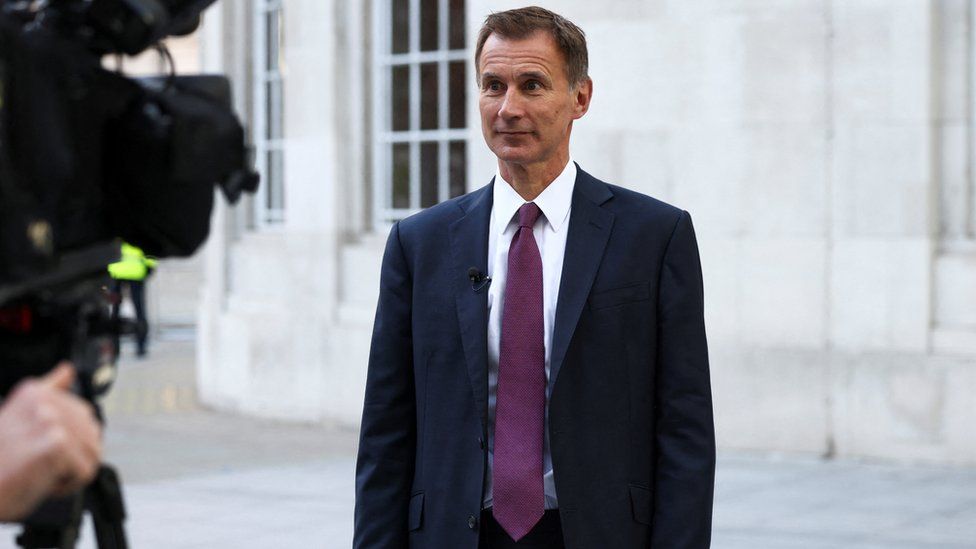ARTICLE AD BOX
 Image source, Reuters
Image source, Reuters
By Michael Race & Annabelle Liang
Business reporters, BBC News
The pound moved higher in early Asia trade after the UK government made a series of U-turns as it abandoned tax cutting policies.
Sterling gained around 0.5% to trade above $1.12 in Monday morning trading.
On Friday, Prime Minister Liz Truss sacked Kwasi Kwarteng as chancellor and said the mini-budget "went further and faster than markets were expecting".
New Chancellor Jeremy Hunt warned over the weekend that there would be tax rises and savings in public spending.
The moves came as international financial markets resumed trading for the first time since the new chancellor's comments.
The mini-budget announced by Mr Kwarteng on 23 September had been blamed for causing turmoil in the financial markets. The pound slumped to a record low of $1.03 and UK government bond prices also fell sharply.
Mr Hunt said his focus was on growth "underpinned by stability". He will set out the government's tax and spending plans on 31 October.
The UK government bond market is due to reopen at 08:00 BST (07:00 GMT). It will be the first time since the Bank of England ended its emergency support on Friday.
The shift in the government's economic policies and market turmoil in recent weeks has led to Goldman Sachs downgrading the UK's economic growth.
The investment bank revised its 2023 UK economic output forecast from a 0.4% drop to a 1% contraction.
Goldman said it expected a "more significant recession in the UK" in part due to "significantly tighter financial conditions" and the planned higher corporation tax rate from next April.
Meanwhile, analysts at the EY Item Club said "high energy prices, elevated inflation, rising interest rates and global economic weakness" meant the UK economy was "expected to be in recession until the middle of 2023".
A recession is defined by the economy shrinking for two three-month periods - or quarters - in a row.
However, EY said the risk of a severe downturn had been reduced by the government's energy bills support for households and businesses, meaning that it will not be as bad as previous recessions.
The economic forecasting group has significantly downgraded its previous summer forecast which estimated the economy would grow by 1% in 2023.
"There's no doubt the UK economy faces a difficult period ahead, with global headwinds adding to domestic pressures," said Hywel Ball, EY UK chair.
"The silver lining is that the government's intervention on energy bills is expected to limit the extent of the downturn, while ONS data suggests that households have access to a larger cushion of pandemic savings than previously thought."
The EY Item Club said it expects inflation to peak at just below 11% in October, lower than previous predictions because of the government's intervention on energy bills. Currently, inflation is running at 9.9%.
EY warned average annual inflation is still expected to outpace annual average wage increases until 2024, with household real incomes likely to decline over the next 12 months to the greatest extent since the 1970s.
Consultancy Pantheon Macroeconomics said the prime minister's decision to appoint Mr Hunt as chancellor had "done little to shrink the risk premium embedded in UK assets".
"Households and businesses, therefore, are still facing a huge increase in their borrowing costs," analysts said.
They added the forthcoming real-terms reduction in government spending looked "set to be bigger than in the 2010s".
You may also be interested in:
WATCH: Jeremy Hunt - Hard decisions ahead

 2 years ago
67
2 years ago
67








 English (US) ·
English (US) ·